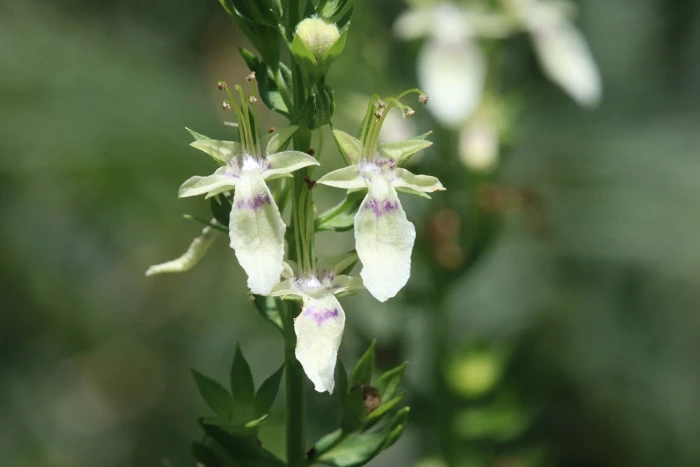Small Coastal Germander
(Teucrium cubense)
Small Coastal Germander (Teucrium cubense)
/
/

Holger Braun
CC BY 4.0
Image By:
Holger Braun
Recorded By:
Copyright:
CC BY 4.0
Copyright Notice:
Photo by: Holger Braun | License Type: CC BY 4.0 | License URL: http://creativecommons.org/licenses/by/4.0/ | Rights Holder: Holger Braun | Publisher: iNaturalist | Date Created: 2019-11-23T15:01:30-08:00 |























Estimated Native Range
Climate Requirements for San Juan Capistrano, California
| This Plant | Your Site | Plant Suitability for Your Location | ||
|---|---|---|---|---|
| • Precipitation | 4" - 101" | 12" | Your precipitation may be insufficient for this plant. Irrigate N" / year. | Irrigate N" / year |
| • High Temp. | 69°F - 111°F | 82°F | Your summer temperatures are normal for this plant. | Excellent |
| • Low Temp. | 23°F - 68°F | 43°F | Your winter temperatures are normal for this plant | Excellent |
This plant should grow well at your location with about N inches per year (Y minutes per month) of irrigation.
Summary
Teucrium cubense, commonly known as Small Coastal Germander or Dwarf Germander, is a perennial herb that is native to a variety of habitats including coastal areas, pine rocklands, and tropical hammocks in the Caribbean, Mexico, Costa Rica, and southern South America, as well as being found in the southwestern United States. It typically grows to a height of 6-24 inches (15-61 cm) and spreads to a similar width. The plant has a bushy habit with deeply lobed, aromatic leaves that are green to gray-green in color. The flowers are small but quite showy, with white or blue-tinged corollas and distinctive purple speckles, blooming from late spring to early fall.
Small Coastal Germander is valued for its ornamental flowers and as a low-maintenance ground cover in xeriscaping due to its drought tolerance. It is also used in traditional medicine, particularly for its antidiabetic properties. In cultivation, it prefers full sun to partial shade and well-drained soils. It is relatively easy to grow and can be used in rock gardens, as a border plant, or in herb gardens. While it is not commonly afflicted by diseases, it can occasionally suffer from root rot if overwatered. It is also worth noting that Teucrium species can be toxic to livestock if consumed in large quantities.CC BY-SA 4.0
Small Coastal Germander is valued for its ornamental flowers and as a low-maintenance ground cover in xeriscaping due to its drought tolerance. It is also used in traditional medicine, particularly for its antidiabetic properties. In cultivation, it prefers full sun to partial shade and well-drained soils. It is relatively easy to grow and can be used in rock gardens, as a border plant, or in herb gardens. While it is not commonly afflicted by diseases, it can occasionally suffer from root rot if overwatered. It is also worth noting that Teucrium species can be toxic to livestock if consumed in large quantities.CC BY-SA 4.0
Plant Description
- Plant Type: Herb
- Height: 1-3 feet
- Width: 1-2 feet
- Growth Rate: Moderate
- Flower Color: Purple, White
- Flowering Season: Spring, Summer, Fall
- Leaf Retention: Evergreen
Growth Requirements
- Sun: Full Sun
- Water: Low
- Drainage: Medium, Fast
Common Uses
Border Plant, Drought Tolerant, Low Maintenance, Rabbit Resistant
Natural Habitat
Native to coastal areas, pine rocklands, and tropical hammocks
Other Names
Common Names: Germander, Cuban Germander, Small Coastal Germander, Tropical Germander
Scientific Names: Teucrium cubense, Melosmon cubense, Melosmon laevigatum, Teucrium chamaedrifolium, Teucrium cordobense, Teucrium cubense, Teucrium cubense subsp. chamaedrifolium, Teucrium cubense subsp. cordobense, Teucrium cubense subsp. cubense
GBIF Accepted Name: Teucrium cubense